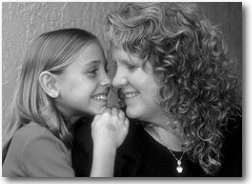PEDStest Online Listens to Parents

On this site you will take Parents' Evaluation of Developmental Status: Developmental Milestones - Assessment Level Version (PEDS:DM-AL). You also have the option to take Parents' Evaluation of Developmental Status (PEDS) and the optional M-CHAT-R.
PEDS:DM-AL is mid-level assessment measure of development, social-emotional and mental health with 6-8 questions in each of 8 developmental domains (Fine motor, Gross motor, Expressive Language, Receptive Language, Self-Help, Social-Emotional, Academic/Pre-Academic, Cognitive) for children birth to 8 years of age.
Instruments that reside somewhere between screening (identifying risk of possible problems) and diagnostics (identifying specific problems and the degree of problems) are called mid-level assessment tools and offer a welcome compromise between screening tests and diagnostic measures.
The PEDS:DM-Assessment Level Version:
- Can inexpensively confirm or disconfirm screening test results
- Provide a rich picture of developmental strengths and weaknesses (including advanced development as well as concerns)
- Offer a range of scores (e.g., age equivalents, percentage of delay, and cutoffs)
- Can be administered hands-on by parents as well as various professionals
- Include a continuous set of items so that mastered, as well as emerging skills can be identified
- Help in monitoring a child's progress
- Help parents and educators identify age-appropriate toys, activities and instructional materials
- Help parents and others to learn more about child development.
The questions in the PEDS:DM-AL are based on observable tasks related to expected milestones of development at each age-level.
The results provide you with an age-equivalent score (in other words, at what age level is your child performing in that area of development) and indicate the percentage of delay in each domain. This measure can be taken multiple times as your child grows, and the results can be tracked over time to show how your child's development is progressing.
PEDS (a screening level measure) is a series of questions written and researched by faculty in the Departments of Pediatrics at Vanderbilt and Penn State Universities. PEDS was tested on more than 1000 children from all around the United States in four separate research studies published in national journals of pediatrics. In the studies, children were given PEDS plus diagnostic tests including IQ, language, emotional and social skills, fine and gross motor skills and so forth. Parents' answers to PEDS questions were then compared to the results of the diagnostic test batteries.
This process showed that some concerns were related to actual problems and other concerns were related to typical development. PEDS identifies which children may have problems such as autism, learning disabilities, speech-language impairments, mental retardation, or cerebral palsy. PEDS also tells which children probably do not have such problems. It does not identify specific problems. Only diagnostic testing can do this.
The information you give us is scanned by a scoring engine that looks for specific words and phrases. When words and phrases associated with developmental and/or behavioral problems are identified, the results will tell you the level of risk and what to do next. Depending on the number and kinds of concerns you raise, you will be directed to specific types of testing such as more in-depth screening, speech-language or psychoeducational work-ups. Some concerns are not associated with developmental or behavioral problems and in these cases, the results will let you know that your child is at low risk but will direct you to information that can be helpful in promoting development and parenting skills.
If your child is 18 months through 4 years of age, you will also take the M-CHAT-R (a screening level measure). The M-CHAT-R looks specifically for autism spectrum disorders (ASD). If the risk level on the M-CHAT-R is also high, the results you receive direct you to follow the process recommended by the American Academy of Neurology and will suggest the need for a range of medical screens and additional testing by an ASD specialist.
If you have questions or comments about the results, please send feedback through the site. We also encourage parents to follow the recommendations in the results page and referral letters and then return to the site and let us know how our service helped you and your child.